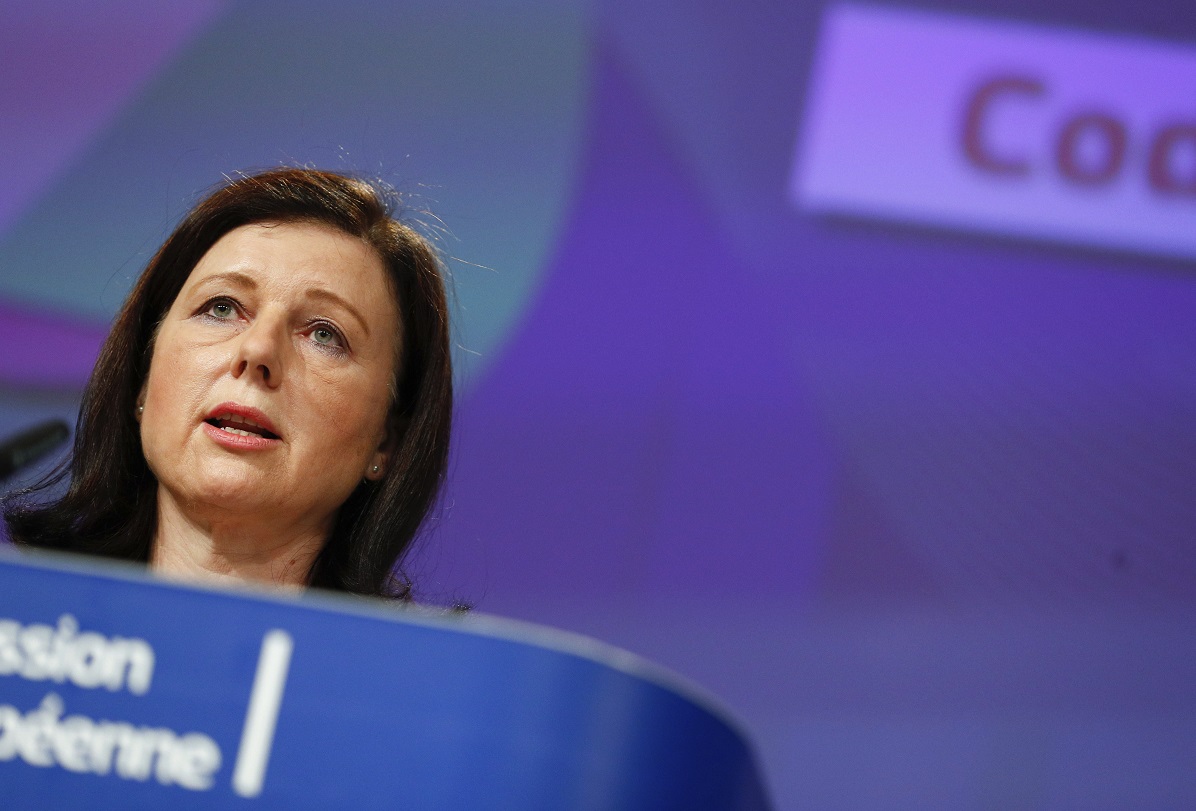EU commissioner Věra Jourová was supposed to contribute to strengthening relations between Brussels and Eastern European member states. Instead, she has done the opposite, further dividing the European Commission. According to the German weekly Der Spiegel, the commission’s vice president is now fighting against her boss Ursula von der Leyen. Jourová allegedly ruined the compromise between Brussels and Warsaw over the release of EU funds, which the European Commission was reportedly close to concluding.
Jourová and von der Leyen reportedly have a “complicated and cold” relationship. Jourová works as European Commissioner for Values and Transparency. Her task is, among other things, to promote the principles of the so-called rule of law, but Jourová’s activities and powers are not only about values but also about the distribution of considerable amounts of money.
“Jourová can be decisive. Hungarian Prime Minister Viktor Orbán felt that,” Der Spiegel reports. “In addition to conflicts with other heads of state and heads of government of individual countries, European Commission President Ursula von der Leyen herself has problematic relations with her.”
Jourová takes a more unambiguous and tough stance than von der Leyen in the “fight against growing authoritarian tendencies in Poland and Hungary.”
Von der Leyen, on the other hand, is trying to find a compromise and avoid a blockade by the EU in the dispute with Poland over the so-called rule of law. The success of the recovery plan could be the beginning of a new EU funding system, which would mean greater powers for Brussels, the Polish daily Do Rzeczy writes about the dispute. According to von der Leyen, the situation surrounding Russian aggression in Ukraine is a “good opportunity” for the Polish government to assert itself.
Fierce opposition from the EC vice president
Because of this situation, the European Commission, under pressure from von der Leyen, adopted the previously blocked recovery plan for Poland. The decision was made without consulting Jourová, who was against it, Der Spiegel points out. Warsaw and Brussels then believed that billions of euros would arrive quickly. However, during a speech in the European Parliament at the beginning of the summer, Jourová stated that the Polish law does not meet the required milestones. Until then, no one had expected strong resistance from Jourová. After this statement, it was, however, clear to everyone that the money would not reach Poland so quickly.
Jourová is not going to relent. She is asking for financial sanctions against Poland and promotes the opening of an investigation into the violation of contracts, even though the Commission vice president does not have the appropriate powers to manage the recovery plan.
According to the German weekly, von der Leyen stood up for the Polish authorities but was subsequently unable to oppose Jourová. Von Der Leyen cannot afford “rotten compromises” because of the consequences of Jourová’s actions, adds Spiegel. Left-wing MEPs had called the rapprochement of Brussels with Warsaw or Budapest “rotten compromises.”
It is not the first time that Jourová has caused embarrassment in the European Union. At the beginning of July, Polish President Andrzej Duda stated on the Polsat News program that he perceives Jourová’s words “purely as a political attack on Poland.” He was responding to the European commissioner’s claim that the current changes in the Polish judiciary, which abolished the controversial disciplinary chamber, do not meet the expectations of the European Commission. Jourová’s statement thus prevented Warsaw from being able to count on money from the European Union recovery fund.






